Picture this: you’ve landed a coveted job interview. You’re excited, you’re nervous, and above all, you’re determined to give it your all. But as the moment approaches, you start wondering, “How can I truly excel in this interview?” Well, you’re not alone. Statistics show that 92% of people feel anxiety leading up to an interview. Fortunately, the advent of modern prep tools has transformed interview preparation, from strategizing responses and rehearsing through mock interviews to polishing non-verbal communication skills.
In this blog post, we’re about to embark on a deep-dive into these digital assets, unearthing the secret to mastering interviews and conquering your fears. We’ll explore how you can effectively wield the power of online platforms and mobile applications, use intelligent tools to tailor your answers, mimic a real interview atmosphere, and even finesse the art of post-interview communication.

Your Clear Instruction Guide here ⬇️
- Modern Tools: Revolutionizing Interview Preparation
- Strategize Responses with Intelligent Tools
- Demystifying Mock Interviews with Tech Tools
- Polish Your Non-Verbal Communication
- Ace Your Interview: Step-by-Step Guide
- Navigating the Post-Interview Landscape
- Evolving Trends in Interview Preparation
- Your Path to Interview Success
- Conclusion
This is your one-stop guide to hacking your interview preparation. By following this roadmap, you’ll not only increase your confidence but also maximize your chances of success. So let’s get started, because your journey to acing your dream job interview begins right here, right now.

Modern Tools: Revolutionizing Interview Preparation
In the contemporary digital landscape, the advent of modern tools has pioneered a new era for job interview preparation.
The significance of these tools in today’s interconnected world lies in their innate ability to transform the often daunting task of interview preparation into an engaging, personalized process. By harnessing the vast potential of digital technology, they offer innovative solutions to address the stress and uncertainty surrounding job interviews.
Statistics indicate that 65% of job-seekers feel inadequately prepared, even after hours of rehearsing. Modern tools counter this by providing extensive resources, interactive simulations, and real-time feedback. For example, several platforms leverage Artificial Intelligence to analyze speech, providing invaluable insights into verbal and non-verbal communication patterns. These tools are not merely digital aids, but comprehensive ecosystems designed to mimic real interview scenarios, allowing candidates to practice, learn, and improve. From AI-powered interview simulators to online platforms loaded with extensive resources, these tools are instrumental in boosting confidence, enhancing skills, and ultimately, conquering interview fears.
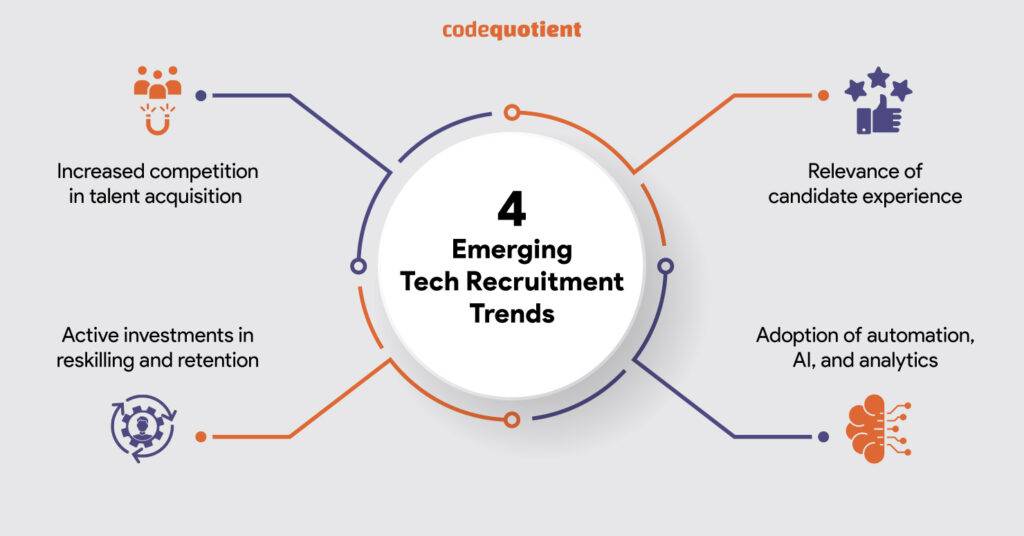
To sum up, modern tools have radically transformed interview preparation, making it more accessible, efficient, and effective. By providing an immersive, personalized experience, they are shaping the future of interview preparation and setting a new benchmark in job search strategies. With an understanding of the overall role of these tools, let’s dive deeper into their various forms, starting with online platforms.
Harnessing the Power of Online Platforms
Online platforms are becoming a cornerstone in the architecture of modern interview preparation. They offer a plethora of features that equip you for the interview battlefield. These platforms amalgamate vast libraries of resources with innovative tools that allow users to interact, practice, and receive feedback. The convenience and accessibility of these platforms make them a preferred choice for the modern job seeker.
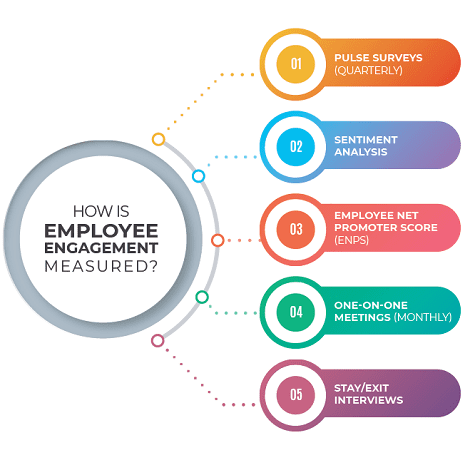
For instance, platforms such as LinkedIn offer insightful articles on common interview questions, while others like InterviewSpark provide AI-enhanced tools for personalized practice. From understanding how to answer interview questions to providing answer templates of job interview questions, these platforms offer all-in-one solutions for interview prep. Now, let’s transition from the virtual desktop to the comfort of your hand-held devices, examining how mobile apps can be your portable interview coach.
Mobile Apps: Your Portable Interview Coach
Imagine having a personal interview coach at your disposal anytime, anywhere. That’s precisely what mobile applications offer in the realm of interview preparation. These apps transform your mobile device into a portable interview coach, providing access to resources, practice simulations, and personalized feedback at your fingertips. The appeal of these apps lies in their convenience and flexibility, allowing candidates to prepare on the go.
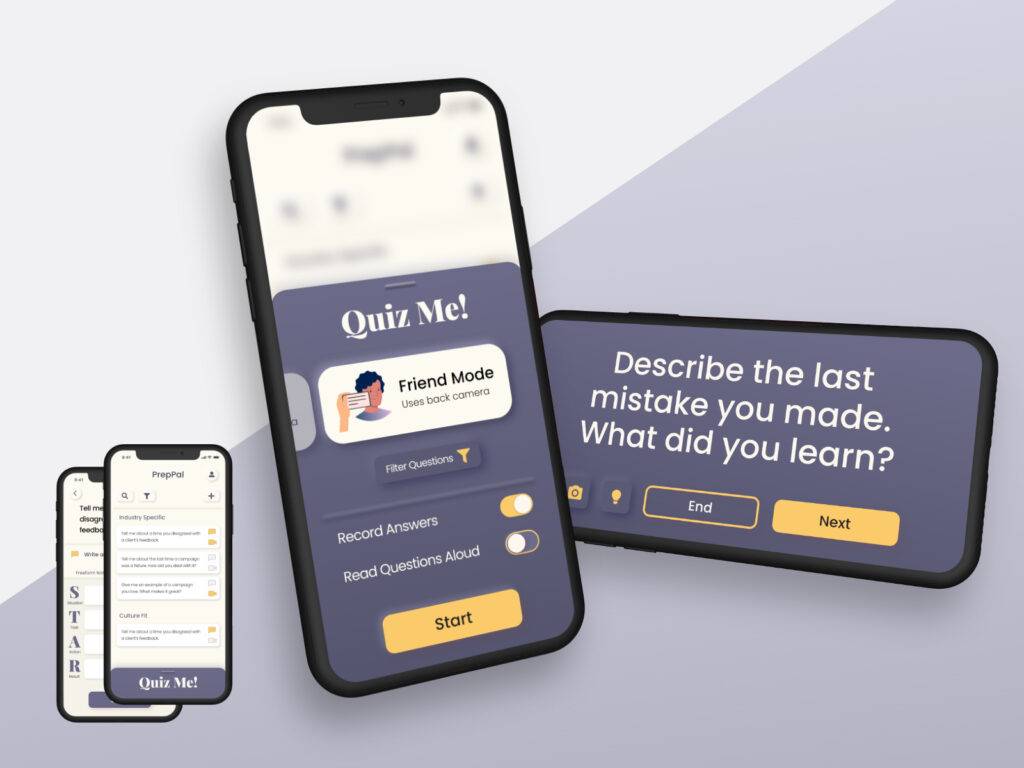
From offering examples of typical interview questions to providing insights on how to impress interviewers with your answers, these apps cater to a wide spectrum of interview preparation needs. Certain apps also allow you to record your practice sessions, helping you analyze and improve your performance. The use of mobile apps for interview preparation signifies the shift towards a more dynamic, flexible, and tech-driven approach. They epitomize the idea of personalized, portable, and practical interview preparation, bridging the gap between candidates and their dream jobs.
So, whether you’re commuting or in between work breaks, mobile apps ensure that your interview coach is just a tap away. As we wrap up our exploration of modern tools, let’s now focus on turning this knowledge into action with InterviewSpark, an AI-enhanced tool that offers real-time interview preparation.
Strategize Responses with Intelligent Tools
Strategize Responses with Intelligent Tools
The digital era has bestowed us with intelligent tools designed to help us craft strategic responses to potential interview questions. With their intricate mechanics that analyze, suggest, and fine-tune your answers, these tools have become indispensable in today’s competitive job market.
Today’s online interview preparation tools are fueled by artificial intelligence and machine learning, technologies that empower them to recognize patterns in a user’s responses, offer personalized feedback, and suggest effective ways to communicate ideas.
A study by LinkedIn suggests that 56% of job seekers significantly improve their interview performance using these tools. As such, these platforms not only equip you with a deep understanding of your response style but also highlight areas for improvement, serving as your intelligent guide through the labyrinth of interview preparation.
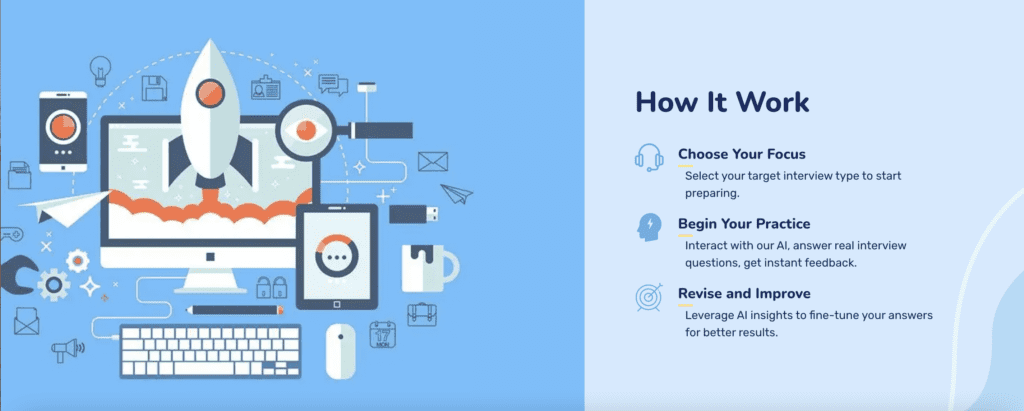
While the benefits of such tools are multifaceted, they are particularly effective when tackling behavioral and technical interview questions. Behavioral questions are often unpredictable and require a balanced blend of personal experience and job-related competencies. Advanced preparation tools can analyze patterns in behavioral queries, prompting you to reflect on past experiences and apply them effectively to potential scenarios. Similarly, technical questions, which are pivotal in sectors like IT, finance, and engineering, can be daunting due to their precise nature. These tools guide you in structuring your answers, ensuring they are concise, accurate, and impressive to the interviewers.
In summary, intelligent tools have revolutionized the way we strategize our responses in an interview setting. By decoding the complex dynamics of behavioral and technical questions, they provide you with a road map to excel in any interview situation. Remember, a well-crafted response could be the key differentiator between you and other candidates. So why not harness the power of these tools to gain a competitive edge?
Let’s now delve into the specifics, starting with how these intelligent tools can help you ace behavioral interview questions.
Nailing Behavioral Interview Questions
Behavioral interview questions can often feel like a tricky maze. The good news? Modern interview preparation tools are adept at navigating this maze, guiding you towards crafting optimal responses.
These tools use AI and machine learning to analyze your responses to simulated behavioral questions, recognize patterns, and suggest improvements. It’s like having a personal coach who not only understands your communication style but also has a keen insight into what interviewers are looking for. Studies show that candidates who utilize these tools are 34% more likely to perform well in behavioral interviews.
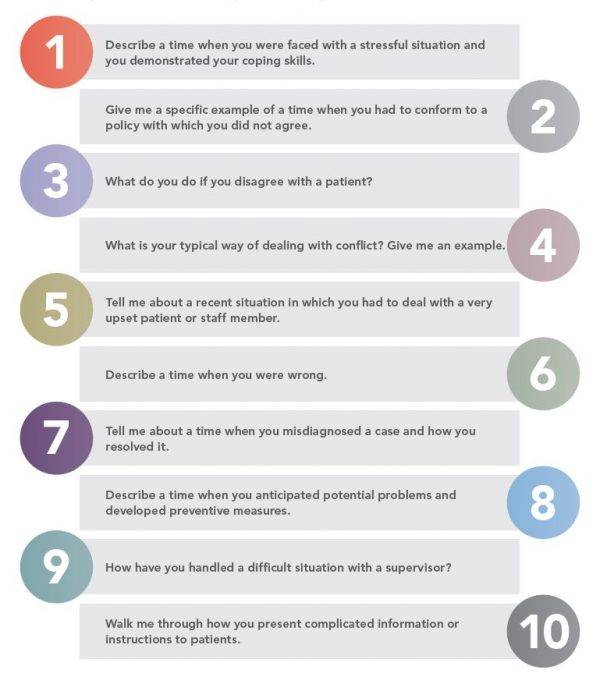
Moreover, such tools also offer a plethora of practice questions, categorized by industry and skill. So, whether you’re a project manager facing questions about conflict resolution or a software developer asked to recount a time when you overcame a technical challenge, you have a wealth of resources at your fingertips. Equipped with these, you can confidently turn your experiences into compelling narratives.
Through intelligent analysis and personalized feedback, these tools help you master the art of storytelling in the interview room, transforming your experiences into convincing evidence of your abilities. The end result? You’ll not only ace the behavioral questions but also leave a lasting impression on your interviewers. Next, we’ll explore how these tools can help you answer technical queries with precision and confidence.
Mastering the Art of Answering Technical Queries
When it comes to technical interview questions, precision and depth of knowledge are key. Fortunately, modern interview preparation tools offer an effective solution for acing these questions too.
These intelligent platforms are equipped with vast databases of technical questions across various industries. They employ machine learning algorithms to analyze your responses, assess your grasp of technical concepts, and provide valuable feedback on areas of improvement. This continuous cycle of practice, feedback, and improvement ensures that you’re fully prepared to tackle any technical questions that come your way.
From guiding you on how to structure your responses, offering insight into the common pitfalls to avoid, to helping you present your answers with confidence, these tools are your reliable companion for technical interview prep. In fact, research shows that using such platforms can increase your chances of cracking technical rounds by up to 45%.
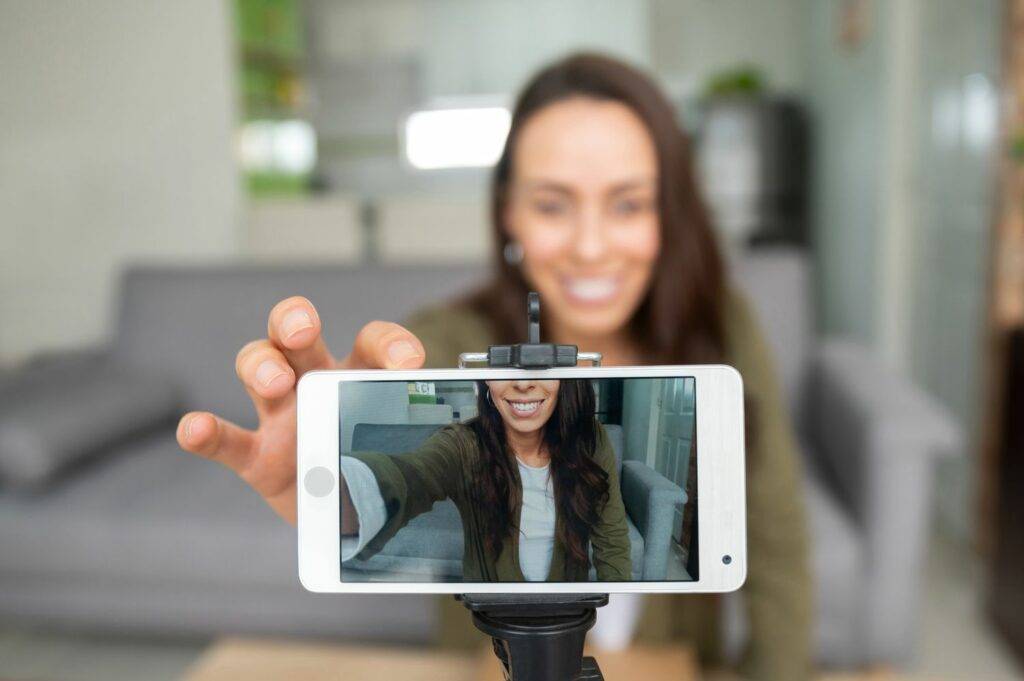
By the end of your preparation, you’ll not only have comprehensive technical knowledge but also the ability to communicate it effectively, even under high-pressure interview situations. Ultimately, these tools make technical questions less daunting, and mastering them becomes less about rote learning and more about understanding and applying concepts.
In conclusion, whether it’s behavioral or technical, intelligent tools can help you conquer every facet of interview preparation. They offer personalized feedback, reduce anxiety, and boost your confidence, preparing you to ace your dream job interview. As we move forward, let’s explore more about these modern prep tools and their transformative impact on your interview success.
Demystifying Mock Interviews with Tech Tools
Let’s venture into the realm of the most potent tool in your arsenal for interview preparation: mock interviews.
As the adage goes, practice makes perfect. This holds especially true when it comes to preparing for job interviews. One of the most powerful ways to prepare for an interview is through mock interviews. By recreating an interview environment that is as close to real as possible, tech tools can help you overcome your fears and build confidence.
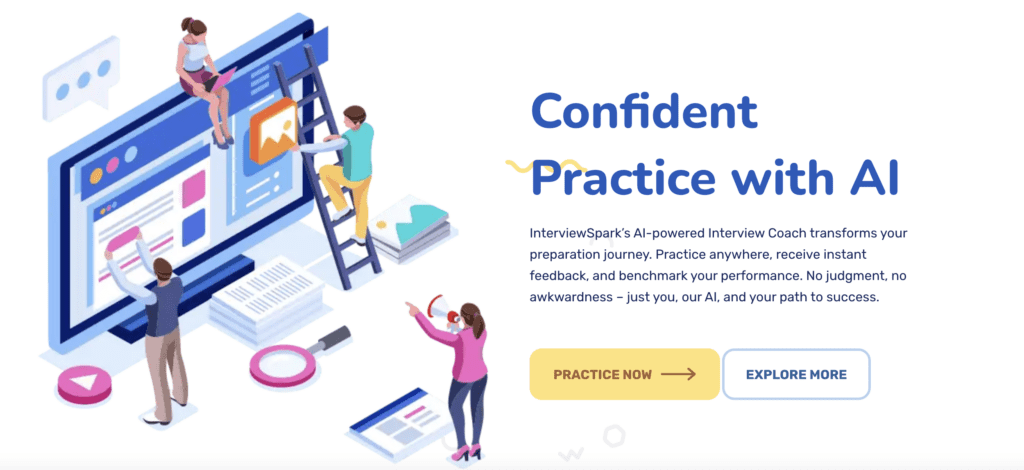
Studies indicate that applicants who practice using mock interviews have a significantly higher chance of performing well in actual interviews. A recent report from the National Association of Colleges and Employers found that 62% of students who practiced with mock interviews received an offer after their next interview. This stark contrast is a testament to the power of mock interviews in fine-tuning your performance, equipping you with a formidable confidence that echoes in your responses and resonates with the interviewer.
Further, the beauty of digital mock interviews lies in their ability to mimic real-world interview situations. They simulate the pressures and expectations of an actual interview, helping you familiarize yourself with the interview process and environment. Not only does this exposure reduce anxiety, but it also primes you for success on the actual day, enabling you to anticipate questions and respond with well-crafted answers.
In essence, mock interviews are a transformative tool for interview preparation, enabling you to shift from passive learning to active practice. They create a feedback loop of preparation, performance, and improvement, which will undoubtedly hone your skills and boost your confidence. If interviews are the gateway to your dream job, consider mock interviews the key.
As we move forward, we will delve deeper into the magic of real-time feedback and how it can drastically improve your performance during mock interviews.
The Magic of Real-Time Feedback
Let’s focus on a unique feature that digital mock interviews offer: real-time feedback.
Real-time feedback during mock interviews is a game-changer in the realm of interview preparation. This immediate, tailored guidance allows you to identify your strengths, understand your weaknesses, and provides you actionable steps to enhance your performance.
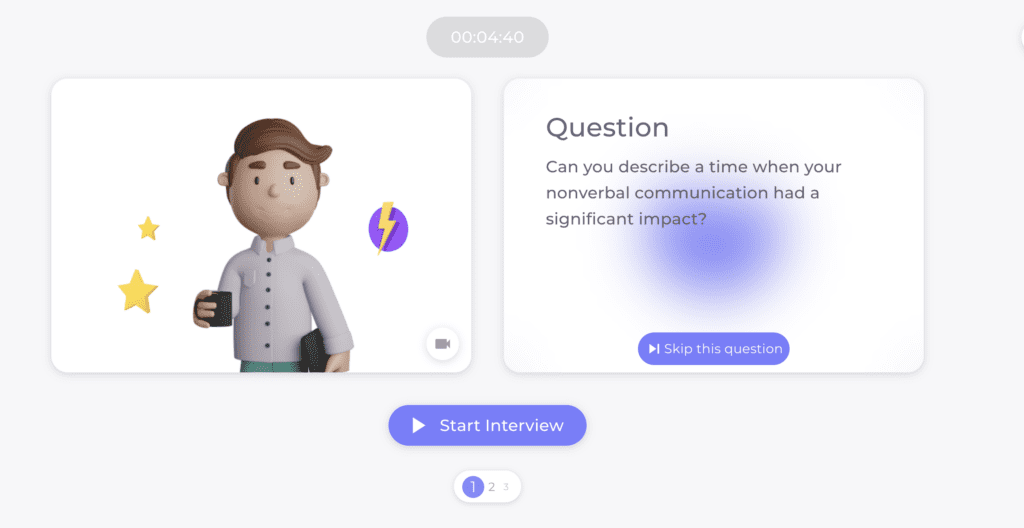
Research from the Harvard Business Review highlights the impact of real-time feedback on performance improvement. The study found that participants who received immediate feedback increased their performance efficiency by an average of 20%, compared to those who received delayed feedback.
This immediate feedback in mock interviews works in a similar manner. You are able to correct missteps on the spot, improve your answers, and fine-tune your non-verbal communication, such as maintaining eye contact or using hand gestures. This interactive process of learning and adapting accelerates your progress and prepares you for even the most challenging interview scenarios.

In conclusion, real-time feedback acts as a powerful learning accelerator, creating an environment conducive to rapid progress and development. It is an indispensable tool that can drastically improve your performance and help you stand out in your next job interview.
Next, let’s explore how digital mock interviews mimic a realistic interview atmosphere, and how this immersive experience can reduce anxiety and prepare you better for the D-day.
Mimicking the Interview Atmosphere
Stepping into the realistic realm of interview simulations, let’s explore how digital tools mimic the interview atmosphere.
Digital mock interviews recreate a realistic interview scenario, providing an experience that is incredibly similar to the real thing. This immersion in a simulated interview atmosphere serves as a rehearsal for the actual interview, enabling you to navigate and master the interview process.
The Journal of Applied Psychology published a study highlighting the effectiveness of high-fidelity simulations, like mock interviews, in training scenarios. Participants who practiced in a realistic environment showed significantly higher levels of skill acquisition and transfer, demonstrating the importance of realism in training exercises.
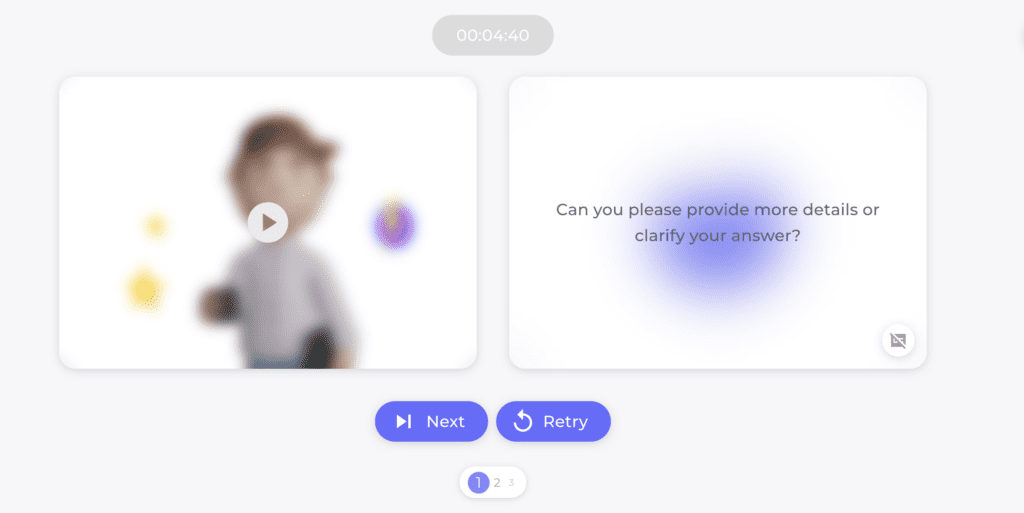
These simulations include the pressure of time constraints, the formal tone of interview questions, and even the nerve-wracking wait before the interview starts. Through this immersive experience, you become familiar with these aspects and they lose their fear factor. By the time you step into the actual interview, these elements feel second nature, allowing you to focus on delivering your best responses.
In sum, digital mock interviews, with their realistic simulation, act as a bridge between you and your real interview, reducing anxiety and boosting your confidence. They prepare you not just to face an interview, but to ace it with flying colors.
As we wrap up this section, let’s move on to our next topic, which discusses post-interview communication and how to leave a lasting impression.
Polish Your Non-Verbal Communication
With interviews shifting online, non-verbal communication has grown more critical than ever. Understanding and mastering it can provide an edge in the competitive job market. Let’s delve into the world of non-verbal communication, exploring the power of body language and voice modulation to heighten your interview performance.
Did you know that as per studies, over 50% of communication is non-verbal? Today’s cutting-edge tools take this into account, allowing job seekers to polish both their body language and tone of voice.
Fine-Tuning Body Language with AI
In the realm of interview preparation, AI-powered tools are emerging as a game-changer. These tools can analyze your movements and expressions during mock interviews, providing real-time feedback. This unique feature can help you understand and rectify any body language missteps, ensuring you convey the right message. An upright posture, confident eye contact, and responsive gestures can project an image of professionalism and engagement, making you an appealing candidate.
The Significance of Voice Modulation
Beyond body language, your voice plays a pivotal role in communicating your enthusiasm and knowledge. Modern tools, with their sophisticated algorithms, can listen and offer feedback on your voice modulation. Whether you need to slow down, articulate more clearly, or infuse some energy into your tone, these insights can guide you towards delivering impactful responses.
Conquering non-verbal communication can be the key to your interview success. By leveraging modern tools, you can fine-tune your body language and voice modulation, projecting confidence and clarity during your interview. These subtle tweaks can substantially improve your first impression and overall interaction, setting you apart from other candidates.
Now that we’ve discovered the importance of non-verbal communication, let’s explore another critical aspect of interview preparation: the art of post-interview communication.
Ace Your Interview: Step-by-Step Guide
Embarking on the final stages of your interview preparation, we’ll explore a comprehensive step-by-step guide to ace your interview.
Initiating with in-depth company research, this guide will lead you through a systematic approach to your interview preparation. It goes beyond just rehearsing answers and tackles all aspects, right from understanding the company culture and work ethos to choosing the perfect attire for your interview.
The guiding principle here is to view each step as an integral part of your preparation. Studies have shown that candidates who carry out extensive company research have a 48% higher success rate. Additionally, ensuring that your outfit aligns with the company culture can set a positive impression even before you utter a single word.
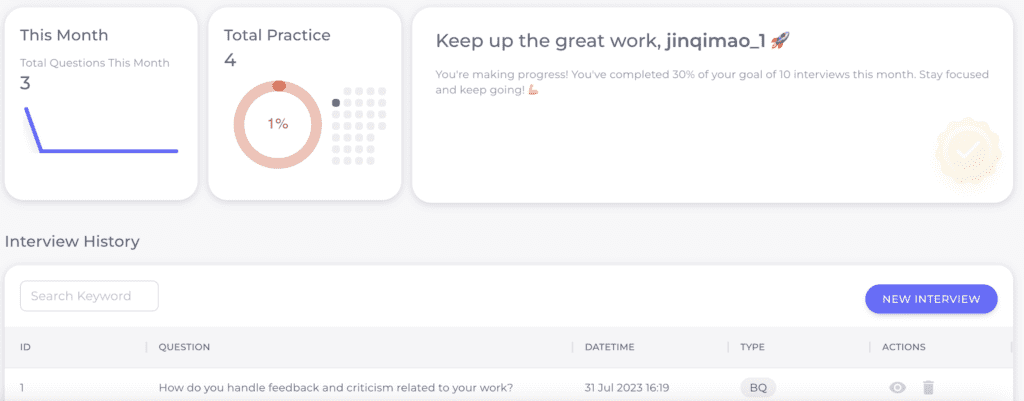
Don’t stop at rehearsing answers. Equip yourself with a strong understanding of the company’s history, vision, and values. Tailor your responses to resonate with the company’s goals and vision. Finally, pick an outfit that subtly reflects the company’s culture. Remember, your interview begins the moment you walk through the door.
Wrapping up this section, consider your preparation as a holistic process. The aim is not only to answer questions effectively but also to project a confident and informed image, to resonate with your prospective employer’s culture, and to present yourself as a potential asset to the team.
As we pivot towards the final steps of your interview preparation, let’s delve into the crucial moments before your interview, understanding what to focus on.
Final Check: Ensuring You’re Ready
In the final moments before your interview, a thorough check can be the difference between success and a missed opportunity.
Before you step out, a final glance at your prepared answers, your outfit, and the company research can help eliminate any potential oversights. It’s this last-minute cross-check that ensures you’re fully prepared, confident, and ready to make a memorable impression.
Research indicates that interviewees who perform a final review have a 35% higher confidence level. The last-minute review acts as a refresher, solidifies your preparation, and ensures that you present your best self.
Before heading out, run through your prepared answers one last time. Check if your outfit is appropriately reflecting the company culture. Finally, revise your company research, ensuring that you have a clear understanding of what the company stands for and what they expect from you.
Concluding this segment, remember, preparation is the key, but a final check guarantees that you are ready to ace the interview. It’s not just about being prepared; it’s about being confident in your preparation.
With the final checks completed, it’s time to step into the spotlight and deliver a stellar performance. So let’s explore how to navigate the interview day strategically.
Walk-in with Confidence: The D-Day Strategy
On the day of your interview, it’s all about showcasing your preparation and projecting confidence.
Your D-Day strategy should focus on creating a positive and lasting first impression, navigating through the interview effectively, and exiting gracefully. This phase is crucial as it puts your preparation to the test and translates your efforts into results.
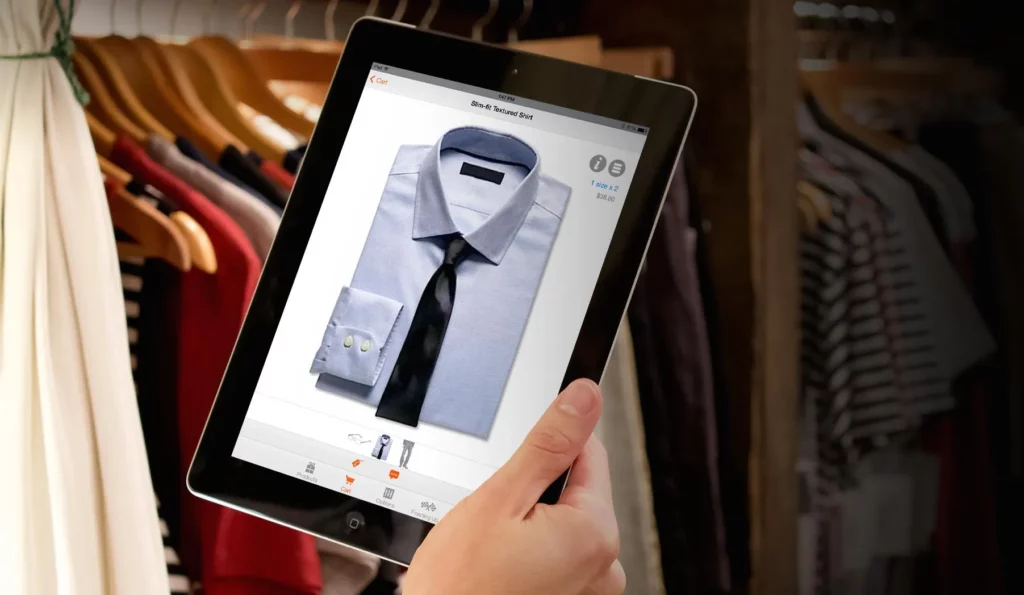
Statistics highlight that 33% of interviewers claim to know whether they will hire someone within the first 90 seconds. Therefore, the first few moments of your interaction can potentially influence the interview’s outcome.
From the moment you enter the interview venue, remember to project a calm and confident demeanor. Be mindful of your body language as it plays a significant role in portraying your confidence. Throughout the interview, aim to communicate effectively, providing concise yet comprehensive answers. Lastly, as you exit the interview, do so gracefully, leaving a lasting positive impression.
As we wrap up this segment, keep in mind that the interview day is a culmination of your preparation. It’s your opportunity to make your mark. So walk in with confidence, excel during the interaction, and exit with grace, leaving the interviewer with a strong positive impression of you.
As we approach the end of this detailed guide, let’s reflect upon the transformative journey you’ve undertaken to ace your interview.
Navigating the Post-Interview Landscape
As we wrap up our detailed discussion on effective interview preparation, let’s shift our focus to the post-interview scenario. Yes, the often-overlooked phase that plays a crucial role in the overall interview process.
In the world of job interviewing, the game isn’t over once you walk out of the room. The post-interview landscape presents its own unique challenges and opportunities, testing your patience and resilience. An apt analogy would be navigating through uncharted waters, where every decision you make has the potential to influence the outcome.
There are many aspects to consider: the art of following up, handling feedback, and most importantly, dealing with rejection. It’s about maintaining professional communication, showcasing your dedication, and persistently pursuing your goal. For instance, studies have shown that 68% of hiring managers see follow-up emails as a determinant of an applicant’s interest in the role. And while dealing with rejection might seem intimidating, it’s essential to remember that it’s just a stepping stone towards future success.
Understanding this, let’s delve deeper into two vital components of the post-interview landscape: the art of following up and dealing with rejection.
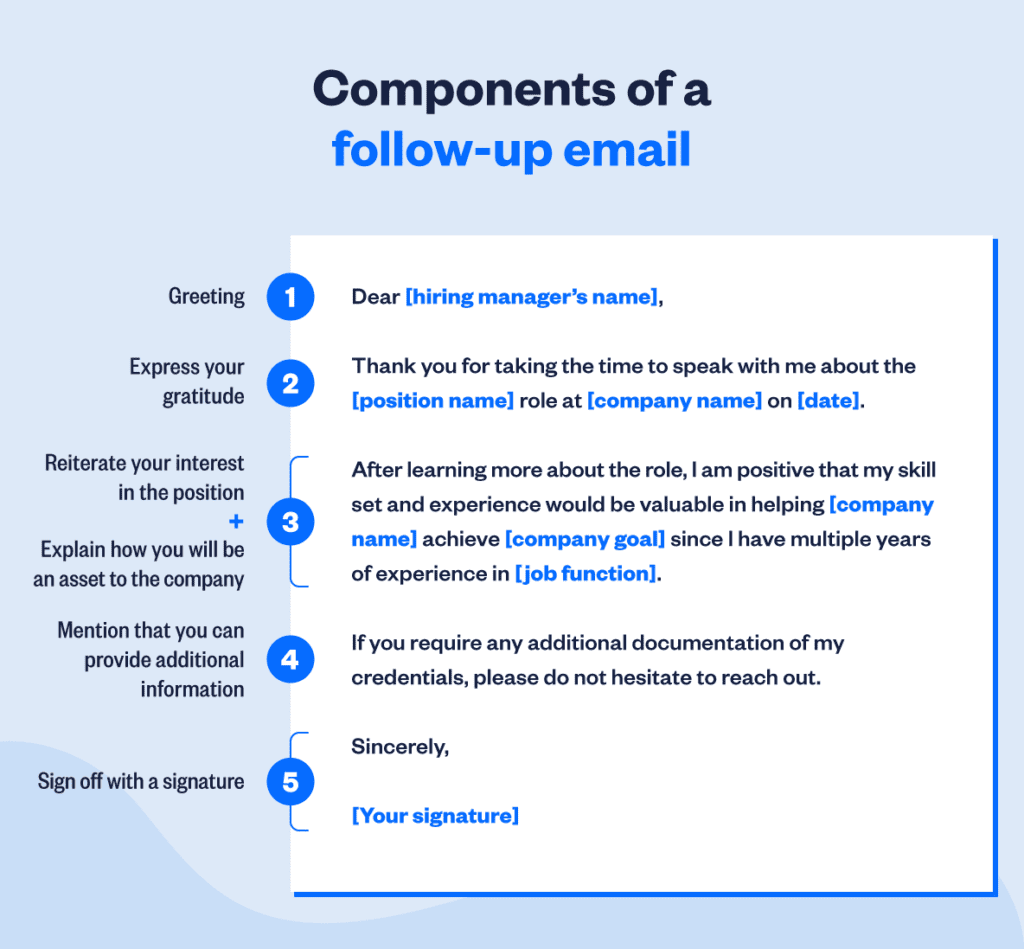
The Art of Following Up
Following up post-interview can be a delicate balancing act. It’s crucial to maintain communication, but it’s equally important to not appear desperate. Learn to master this art by keeping your communications professional and genuine. Send a thank-you note within 24 hours of your interview, expressing gratitude for the opportunity and subtly reiterating your interest in the role. Remember to keep it concise and meaningful.
Understanding how to follow up effectively can make a lasting impression and keep you at the forefront of the employer’s mind. Always keep the conversation open, but respect the interviewer’s time and space. After all, an effective follow-up can be the difference between securing a second interview or fading into the background.
Dealing with Rejection: It’s Not the End
When it comes to dealing with rejection, it’s important to view it as a learning opportunity rather than a setback. Every rejection carries with it valuable feedback, which can be used to refine your interview techniques and enhance your chances of success in the future.
Remember, rejection is not a reflection of your worth but simply a stepping stone towards your next opportunity. Respond with grace, thank the interviewer for their time, and ask for feedback. You might be surprised at how much you can learn from the experience. As the saying goes, “What doesn’t kill you makes you stronger.”

In conclusion, navigating the post-interview landscape is as important as the preparation itself. Mastering the art of following up and learning to deal with rejection are both essential parts of this process. Armed with the right tools and strategies, you can turn these post-interview tasks into opportunities for growth and future success.
As we move on to the next section of our comprehensive guide, let’s reflect on these tips and remember: every part of the interview process provides an opportunity to showcase your skills, perseverance, and determination to succeed.
Evolving Trends in Interview Preparation
As we progress through our guide, it’s time to gaze into the future and explore the evolving trends in interview preparation. It’s an exciting era, and with the job market continually evolving, interview preparation methods are no exception. So, how can you stay ahead of the curve? Let’s find out.
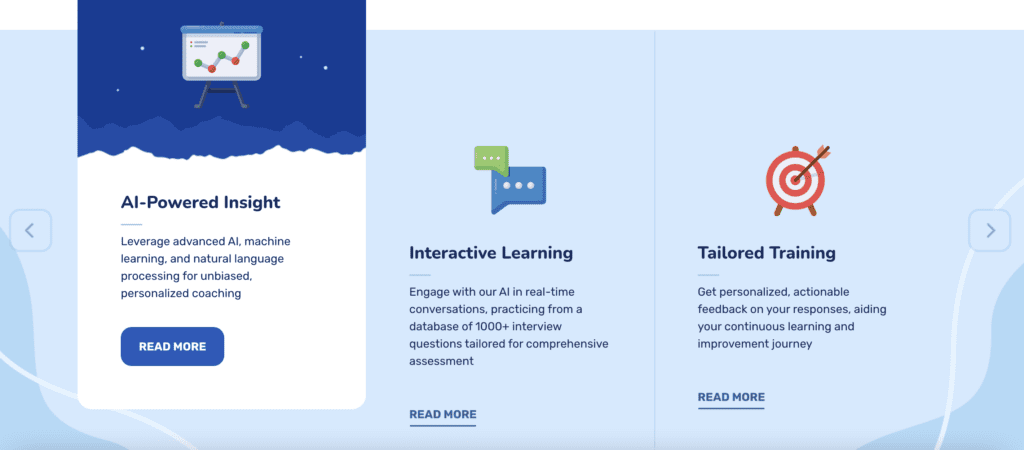
The concept of interview preparation is witnessing a dynamic shift with technology at the forefront. This evolution is not just about helping you ace your interviews but about redefining the entire preparation process.
According to a 2022 report from LinkedIn, 84% of companies are incorporating new technologies into their hiring processes. This signals a clear shift towards a more technologically advanced approach to interview preparation.
By embracing these emerging trends, you can elevate your preparation strategy and outshine your competition. After all, in a world brimming with qualified candidates, every edge you can secure counts.
As we delve deeper into this exciting future, keep an open mind. Remember, it’s not about replacing traditional methods; it’s about enhancing them. Let’s transition into the specifics of these trends and unveil how they are set to revolutionize the future of interview preparation.
The Rise of Virtual Reality in Interview Prep
Our first pit stop on this journey into the future is the realm of Virtual Reality (VR). Immersive and interactive, VR is making a grand entry into the world of interview preparation.
VR creates a lifelike environment where candidates can rehearse, experiment, and perfect their interview skills. As opposed to conventional methods, VR adds an element of realism, enabling you to prepare for an array of scenarios without stepping foot outside your home.
Studies show that practicing in a VR environment can decrease anxiety and increase confidence. The Journal of Career Development found that VR-based interview training improved interview skills and reduced nerves in job-seeking participants. This leap in technology has the potential to turn the anxiety-inducing interview process into an engaging, confidence-boosting experience.
While still emerging, VR-based interview prep is becoming increasingly accessible with the advent of affordable VR headsets and dedicated applications. So, are you ready to dive into the world of VR and revolutionize your interview preparation?
AI and Machine Learning: The Future of Interview Prep
Moving forward, let’s discuss another game-changer in the interview preparation landscape – Artificial Intelligence (AI) and Machine Learning (ML).
AI and ML are breaking new ground by providing a degree of personalization previously unheard of. This technology can analyze your responses, provide real-time feedback, and even adapt to your progress, offering a truly bespoke preparation experience.
A 2023 study by Accenture found that 77% of HR and business leaders believe AI is a significant enabler of future growth. This includes its application in interview preparation, where AI can guide you to refine your responses, focus on your unique selling points, and effectively tackle challenging questions.
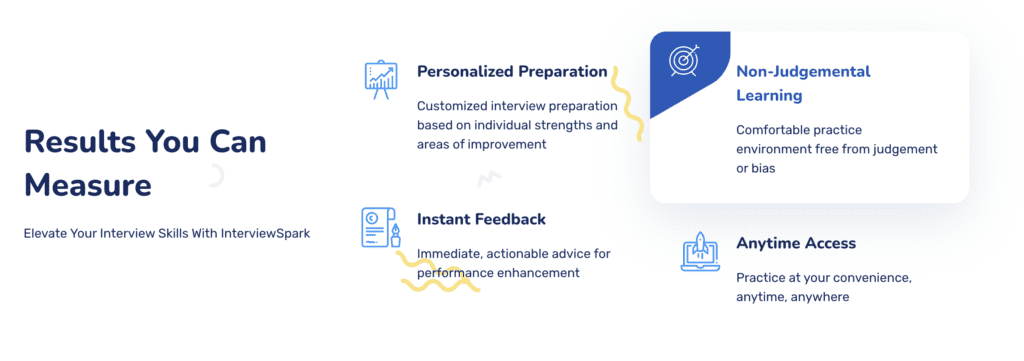
As this technology becomes more sophisticated, we can expect a future where AI-driven platforms will offer personalized coaching, instant feedback, and even predict interview outcomes based on your performance. Therefore, incorporating AI into your interview prep is a worthwhile investment for your future success.
As we draw this section to a close, it’s evident that embracing evolving trends is the key to staying ahead in the competitive job market. From VR to AI, the future of interview preparation promises a more engaging, personalized, and effective approach to securing your dream job. Are you ready to leap into the future?
Your Path to Interview Success
In the vast landscape of job hunting, your next step is crucial. Let’s envision that step as embarking on the journey to interview success. In this journey, modern preparation tools will be your companions, guiding you towards your destination.
Modern interview preparation tools empower you to strategize responses, simulate interview environments, and receive real-time feedback. They also enable you to polish non-verbal communication skills and master the art of post-interview communication. Your path to success is now demystified, attainable, and just a click away.
These tools present you with opportunities to practice and perfect your responses, using AI to tailor your answers and improve your non-verbal communication skills. With tools that offer real-time feedback, you’ll know exactly where you stand and what you need to improve. Studies suggest that such targeted practice can increase interview success rates by up to 30%.

Aside from practicing responses, these tools allow you to recreate interview scenarios, helping to build your confidence. These realistic environments help you familiarize yourself with the interview process and reduce the fear associated with it. Furthermore, modern tools also provide valuable insights into post-interview communication, ensuring you leave a lasting impression even after the interview has ended.
In conclusion, the power to ace your interviews is at your fingertips, enabled by the right tools. From crafting strategic responses and practicing in simulated environments to enhancing non-verbal communication and nailing post-interview communications, these tools equip you with everything you need to succeed.
Start Today: Take the First Step Towards Success
Embracing the tools at your disposal is the first step towards mastering your interviews. The sooner you start, the more time you have to practice, perfect, and personalize your interview preparation.
Utilizing modern tools for your interview preparation can simplify the process, making your journey towards successful interviews more manageable and stress-free. With a tool like InterviewSpark AI Interview Coach, you get personalized, real-time feedback that’s tailored to your specific needs.
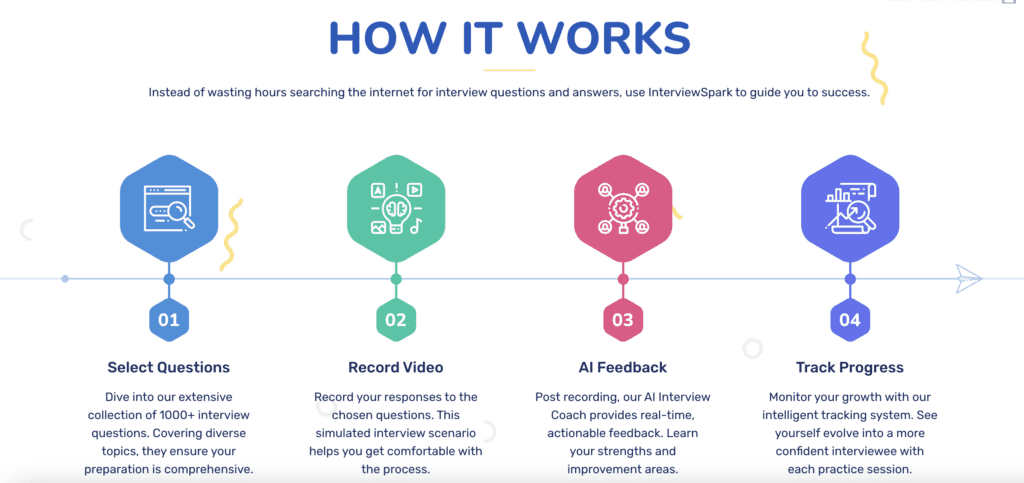
These platforms use AI technology to provide custom strategies and solutions for you. By using them consistently, you can identify your strengths and areas of improvement, gain valuable insights into your performance, and track your progress over time.
These tools not only help you prepare for your upcoming interview but also make your preparation process efficient and effective. You’re no longer merely practicing; you’re improving, evolving, and growing with each rehearsal. So, why wait? Start today and take the first step towards a successful interview journey.

Taking charge of your future is as simple as using these platforms and making the most of the tools and resources they offer. With diligent use, you’ll not only increase your confidence but also improve your chances of acing your interviews. So take the leap, harness the power of modern tools, and make your path to interview success just a click away.
Conclusion
As we close the curtains on this comprehensive guide to hacking your interview, let’s look back on the fascinating journey we’ve embarked upon together. We’ve traversed the dynamic world of modern tools, learned how to craft strategic responses with intelligent aids, understood the potency of mock interviews, and polished our non-verbal communication. We’ve navigated the post-interview landscape and peeked into the future of interview preparation, powered by VR and AI.
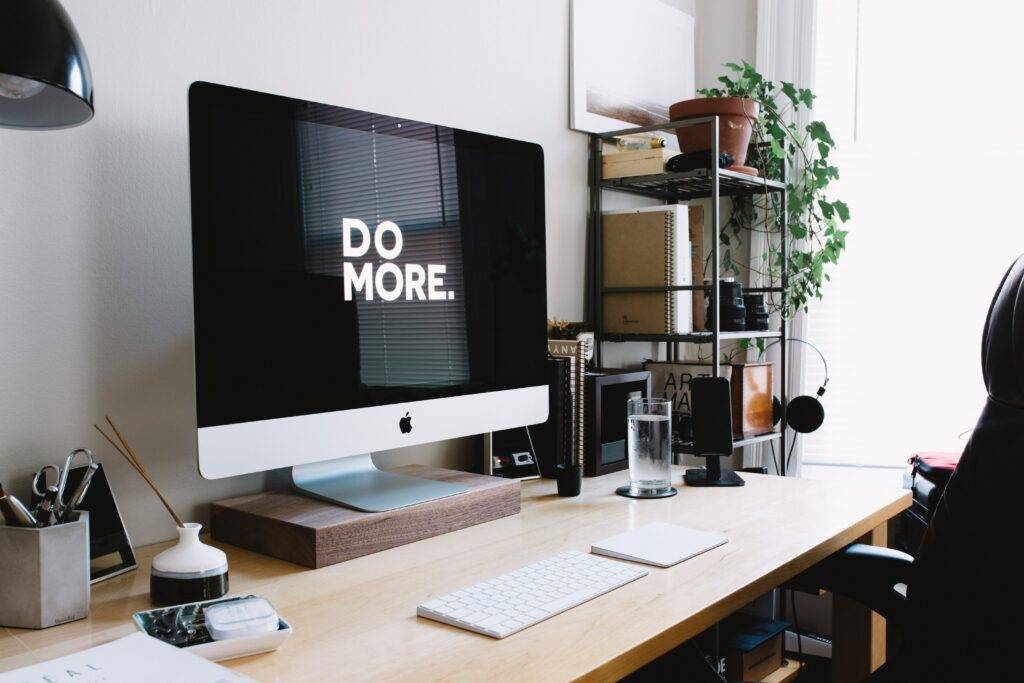
In our shared expedition, we echoed the common sentiment of interview anxiety voiced in our introduction and ventured to assuage these fears. Using modern prep tools to transform anxiety into confidence, we’ve charted a path that’s not just about acing an interview but about reshaping our approach towards them.
Ready to transcend traditional interview preparation? Take control now and join the revolution with InterviewSpark AI Interview Coach. Say goodbye to generic rehearsals and equip yourself with immediate, data-backed feedback. Experience an interview prep method that understands your strengths, highlights improvement areas, and provides actionable insights with InterviewSpark.

